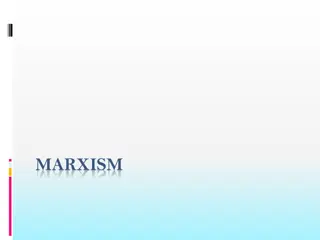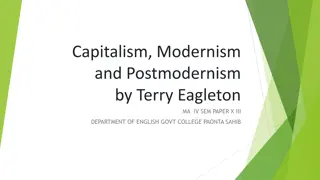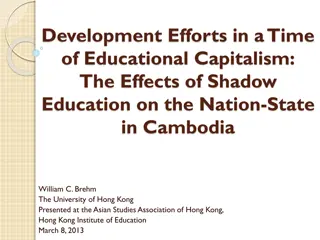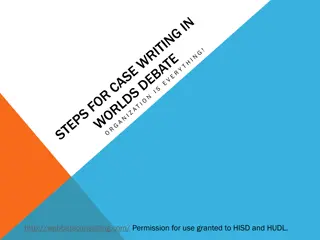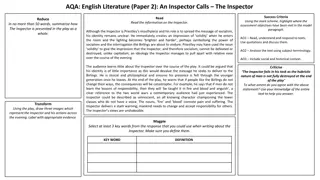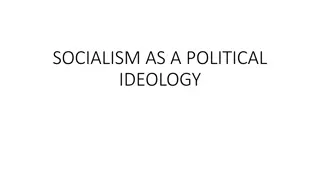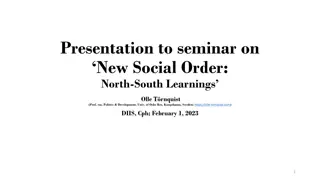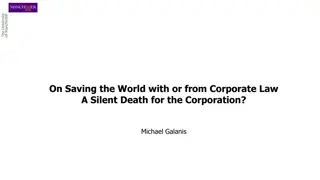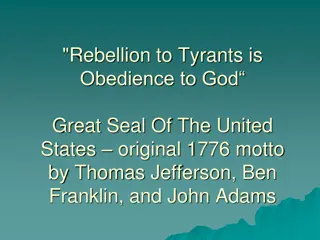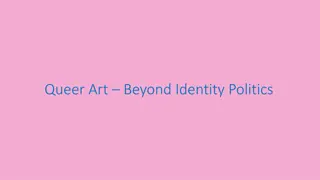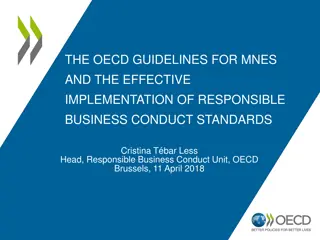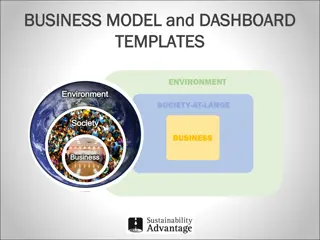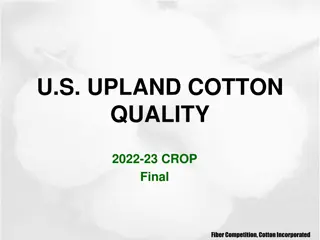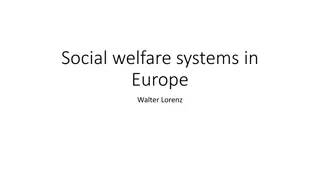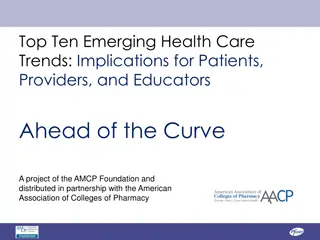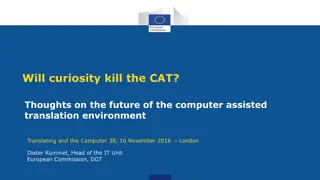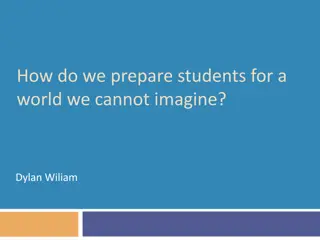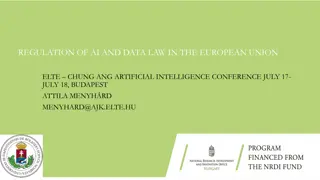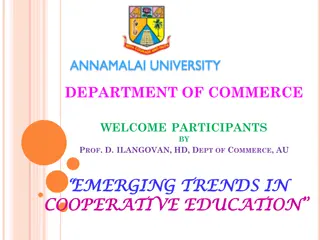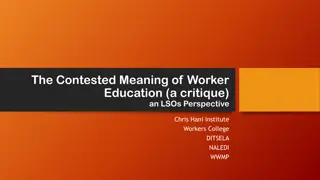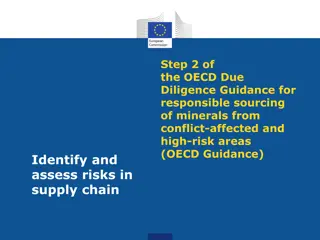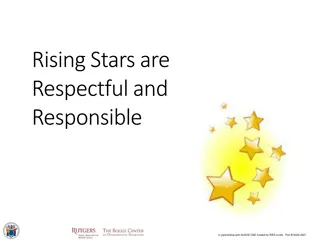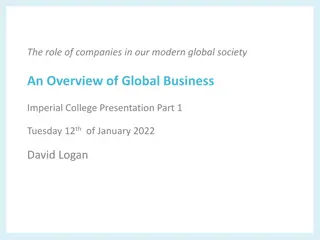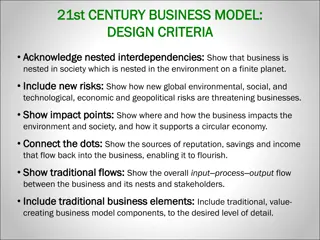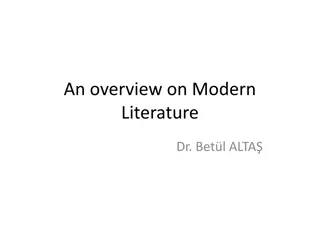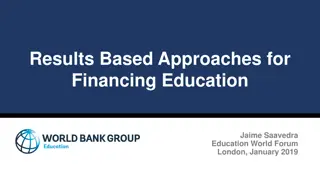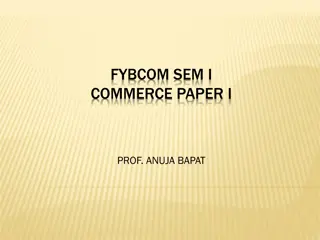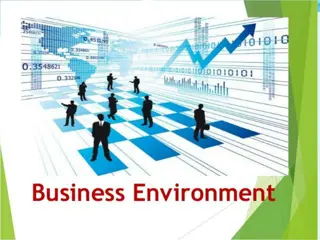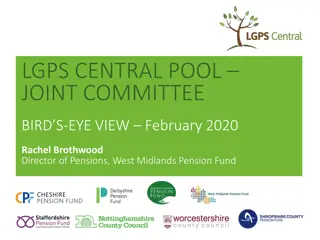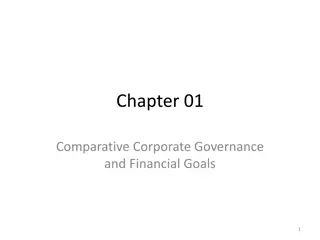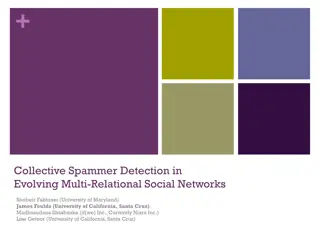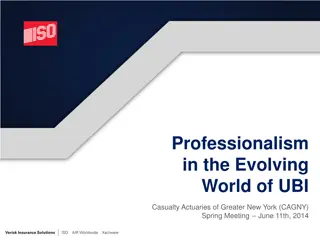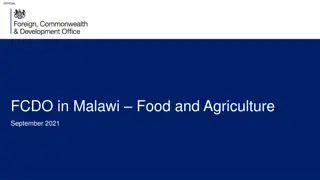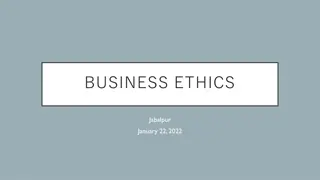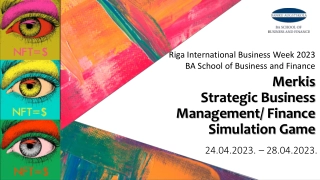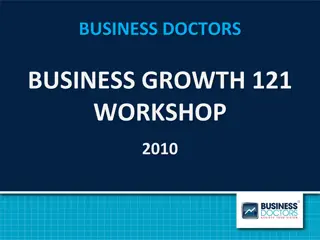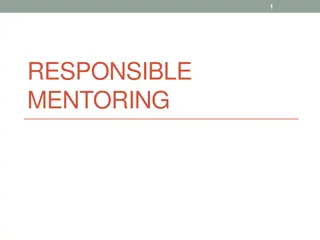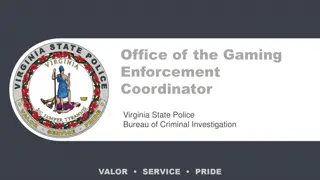Evolving Trends in Business Education for Responsible Capitalism
Explore the developments and challenges in business education for responsible capitalism, focusing on the role of business schools, a decade of progress in programs and research, and analysis of UN PRME signatory reports. Discover how sustainability-related research and learning offerings are shaping the integration of responsible business practices.
Download Presentation

Please find below an Image/Link to download the presentation.
The content on the website is provided AS IS for your information and personal use only. It may not be sold, licensed, or shared on other websites without obtaining consent from the author. Download presentation by click this link. If you encounter any issues during the download, it is possible that the publisher has removed the file from their server.
E N D
Presentation Transcript
Business Education for Responsible Capitalism: Developments and Challenges Jeremy Moon Director www.nottingham.ac.uk/business/iccsr 1
Role of the Business School in Responsible & Sustainable Business Blame Enron/ Worldcom/ Financial Crisis / negative social & environmental impacts NB Physics, Engineering & wider education? Wider impacts of education and socialisation on business roles; particularly in-work socialisation? Contribution of BS experience to business behaviour? How has BS experience changed in a decade? What drives BS education? Should BS reflect system or change it?
A Decade of Progress: Programmes Growth in programmes, modules and enrolments ethics, responsibility, sustainability Key variables: Leading schools appear most committed: branding, resources & flexibility Associated with dedicated research centres; faculty-engagement; student mobilisation Continental divide? USA market driven; EU academic driven
A Decade of Progress: Research ? Maturation of R&SB research field: Converging conversation & replicable studies (but also issue-led, conceptually fluid) Distinctive theoretical orientations PhDs; Journal status of CSR as per Entrepreneurship + Status in academic associations (AoM, EGOS) Dedicated journals; mainstream journals; conferences & networks; text books, handbooks
A Closer Look at the Committed Analysis of UN PRME Signatory Sharing Information on Progress (SIP) Reports (see ICCSR Working Paper 2011) SIP as mutual learning device; for STK communication; no template or verification Six SIP principles as foundation for integrating R&SB education + 7th operations principle Analysis of first 100 reports is ostensibly of the committed (nb now 400+)
What has been analysed? Sustainability related research Facilitating the integration Educational framework Engaging internal / external stakeholders Sustainability related learning offerings Organisational practices Teaching methods
Key Messages from the analysis Vast majority aim to embed R&SB in all areas; most emphasis on teaching; especially MBAs Although dedicated R&SB research capacity common, little elaboration of understanding of and approach to R&SB research Committed to campus greening/ CO2 reduction and community involvement (reflecting university responsibilities / capabilities)
Strategies for Integrating Sustainability Existing Structures New Structures Quadrant I Quadrant II Narrow Curricula Piggyback Digging deep (Specialisation) Integration of sustainability within existing structures by adding sustainability to existing courses or modules. Integration of sustainability through the creation of new structures such as stand-alone courses or modules. Quadrant III Quadrant IV Mainstreaming Focusing Broad Curricula Integration of sustainability within existing structures but with the emphasis on a broader cross-curricula perspective Integration of sustainability through new cross- disciplinary offerings such as sustainability related course which is required for all business school students as well as new programmes which could be transdisciplinary (involvement of non-academics)
Questions Remain Progress beyond the committed? Among the committed how widespread is intra School commitment (R&SB as fad or taste)? Are the committed / leading schools main- streaming R&SB or co-existing with financial business model? ... Given FT Index remains main yardstick of Business Schools How effective is the education for R&SB?
Questions Remain In light of these questions and surveying the prospects, What sort of business education is appropriate for responsible capitalism ? 1.What we teach? 2.Governance of business education?
What we teach? Main barriers to curriculum change are cognitive (given organizational enablers for change e.g. branding; strategy; staffing)? Usually entails budget and time re curriculum revision; staff recruitment, development etc. From learning about R&SB (knowledge) vs. learning for R&SB (capabilities)? What is relationship between four strategies for integrating R&SB?
What we teach? Existing Structures New Structures Quadrant I Quadrant II Narrow Curricula Piggyback Digging deep (Specialisation) 61 % 10 % Integration of sustainability within existing structures by adding sustainability to existing courses or modules. Integration of sustainability through the creation of new structures such as stand-alone courses or modules. Quadrant III Quadrant IV Mainstreaming Focusing Broad Curricula Integration of sustainability within existing structures but with the emphasis on a broader cross-curricular perspective 35 % Integration of sustainability through new cross- disciplinary offerings such as sustainability related course which is required for all business school students as well as new programmes which could be transdisciplinary (involvement of non-academics) 53 %
What we teach? Innovation easier in new structures than mainstreaming? (Nottingham: mainstream on basis of niche innovation) How to achieve lasting impact on graduates knowledge of & capabilities for R&SB? Blended pedagogies: conceptual, evidence- based, tools, experiential, creative (Nottingham) Alumni engagement for longer term impact? Co-learning?
Governance of business education? Responsible capitalism agendas & governance questions for companies & markets and BS? As per companies who commit to R&SB, questions of depth of commitment; need for assurance arise Will new watchdogs emerge? Will existing watchdogs include / prioritise R&SB? Where are we now? R&SB educators use STK analysis: use on BS?
Owners and Students? Owners (oftenUniversities) often see BS as cash cows & means of engagement Students (potential, enrolled, alumni) Expect: career development / a ticket to ride / finishing school ; salary enhancement - especially MBAs or is this an FT driven myth? Is UK student expectation of education for sustainability shared in BS (especially MBA)?
Employers & companies in general Expect BS graduates & their skills & knowledge to be conducive for individual / collective business success i.e. sustainable profits Expect information and knowledge for practice Reward schools with internships; research partnerships; recruitment; $ Variable business perspectives on significance of R&SB (sector, national factors; innovators, imitators, laggards)?
Staff Expect career development; educational / academic standards; excellence in teaching and research; recognition; engagement & impact R&SB agendas have potential here: how are they conveyed / articulated and by who within BS?
Society Expects BS education to reflect / serve broad societal values BS could align responsibility to society & sustainability for society with education Stewardship, citizenship or network models to underpin R&SB strategy and to recognise and take account of business power?
Governance of business education? STK analysis locates prospects... Reveals drivers of BS behaviour and weak mechanisms for responsibility to society? Impact of leading R&SB schools on dominant gate-keepers (e.g. FT Index) or graduate employment criteria is modest? Responsible capitalism raises doubts about self regulation in markets
Governance of business education? Leading schools can manage this complexity through co-existence , more challenging for others (resources- & reputation-light) who otherwise reflect logic of STK system Is there a wider challenge to be more like professions (used to be?)? Serving system; themselves; clients (challenge to STK model?) What are mechanisms for more responsible self- regulation or co-regulation?
Governance of business education? Can institutions offer opportunity for mutual governance? (accreditors, EABIS, UNPRME, Aspen BGP? Costs to organisations and risk of membership exit? Alternatives?
1. Is progress masking co-existence of R&SB & financial business education? 2. How can we teach R&SB? 3. Are our stakeholder relations / governance systems structured against R&SB? 22
References Godemann, J, Herzig, C, Moon, J and Powell, A (2011) Integrating Sustainability into Business Schools: Analysis of 100 UN PRME Sharing Information on Progress (SIP) reports ICCSR Research Paper Series No. 58-2011 Lockett, A, Moon, J & Visser, W (2006) Corporate Social Responsibility in Management Research: Focus, Nature, Salience and Sources of Influence Journal of Management Studies Matten, D & Moon, J (2004) Corporate Social Responsibility Education in Europe Journal of Business Ethics
References Moon, J & M Orlitzky (2011) Corporate social responsibility and sustainability education: A trans-Atlantic comparison Journal of Management Education M Orlitzky and J Moon (2010) Corporate Social Responsibility Education in D Swanson and D Fisher eds Assessing Business Ethics Education Information Age
Your next steps making the most of your EAUC Membership 1. Resources - visit the dedicated Education for Sustainability section on the EAUC resource bank visit SORTED - the online resource for sustainability in the Learning and Skills sector 2. Networks - Join SHED - the leading cross sector Community of Practice in the UK for Education for Sustainability (EfS). Developed in collaboration with Higher Education Academy. Visit the EAUC stand for more information on this group 3. Recognition - want recognition for your curriculum projects enter the 2012 Green Gown Awards courses and/or skills categories. Entries open summer 2012 4. Measure and improve - sign up to LiFE for help on embedding ESD into your institution - visit www.thelifeindex.org.uk Membership matters at www.eauc.org.uk 25


